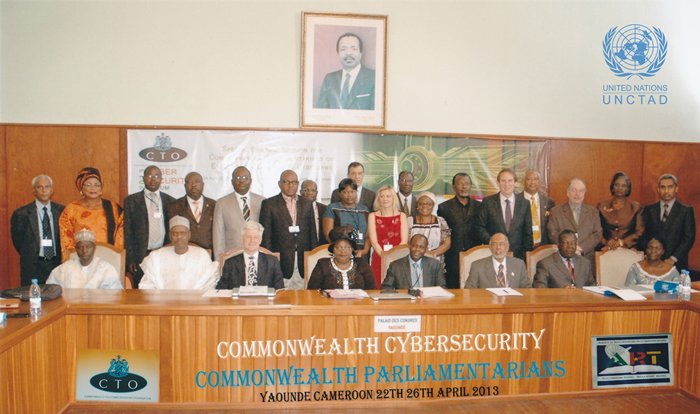At a special briefing session held in Yaoundé, Cameroon, on 24 April 2013, a cross-section of Commonwealth parliamentarians from Australia, Cameroon, Namibia, Nigeria, Trinidad and Tobago, and the United Republic of Tanzania examined international and regional best practices on key legal aspects of electronic commerce and cybersecurity.
The session was organized jointly by UNCTAD, the Commonwealth Parliamentary Association and the Commonwealth Telecommunications Organization.
Parliamentarians play a central role in reforming legislation to handle the transformation of commerce through information and communication technologies (ICTs). Led by Professor Ian Walden, Head of the Institute of Computer and Communications Law at Queen Mary, University of London, the participants analysed legal and regulatory issues related to electronic commerce - including legal recognition of electronic messaging for commerce and e-government, and cybersecurity measures.
Parliamentarians agreed on the need for Commonwealth members to share good practices on legal frameworks for e-commerce, while closer cooperation with relevant international organizations such as UNCTAD would increase awareness on relevant issues including cybercrime and cybersecurity, data protection and privacy, consumer protection, and online content control. It was agreed that Commonwealth members should take into account international model laws, and that they should sign and ratify international instruments that will encourage trans-border cooperation in response to cybercrimes and threats.
The meeting concluded that, at the national level, lawmakers should take into account all relevant stakeholders, and adopt peer-review mechanisms when preparing to draft cyber legislation. The involvement of ICT experts, for example, enabled lawmakers to better understand the evolving ICT landscape and to legislate appropriately. Different actors could be brought on board by raising awareness about ICT opportunities and threats, including in rural areas and among marginalized communities, and also by building trust among users and providers of e-commerce, for example by creating consumer protection agencies.
Countries also needed to commit to the practical implementation of legislation on cybersecurity, participants in the meeting said.

The UNCTAD work programme on E-Commerce and Law Reform is funded by the government of Finland.



